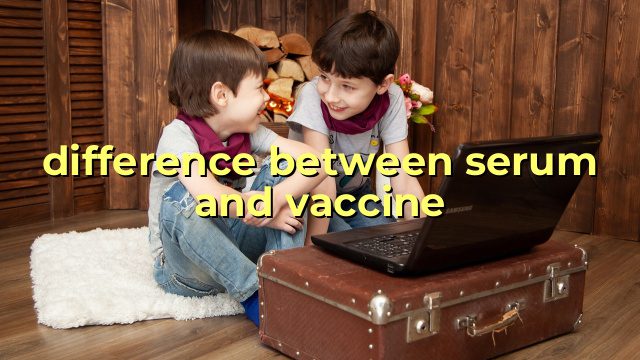The Difference Between Serum and Vaccine
What is a Serum?
A serum is a blood-based product that contains antibodies, which are proteins that help fight off infections. When a person is infected with a specific virus or bacteria, their body produces antibodies to help fight off the infection. These antibodies are then collected and extracted from the blood, creating a serum. The serum can be used to help treat people who have been infected with the same virus or bacteria.
What is a Vaccine?
A vaccine is a substance that is injected into the body to create an immune response. Unlike a serum, a vaccine is created using a small piece of the virus or bacteria. This small piece, called an antigen, is used to trigger the body’s immune system to create an immune response. The body then produces antibodies to help fight off the virus or bacteria.
Their Differences
The main difference between serum and vaccine is that a serum is used to treat people who are already infected, while a vaccine is used to prevent people from becoming infected. A serum can provide immediate protection, but it only lasts for a short period of time. A vaccine, on the other hand, provides long-term protection.
Another difference is in the way they are administered. A serum is typically given through injection or infusion, while a vaccine is usually given as a shot. Some vaccines, such as the flu vaccine, are also available in a nasal spray.
Conclusion
In summary, while both serum and vaccine contain antibodies and are used to help fight off infections, they serve different purposes. Serum is used to treat people who are already infected, while a vaccine is used to prevent people from becoming infected. Understanding the differences can help you make more informed decisions about your healthcare.
Table difference between serum and vaccine
| Difference between Serum and Vaccine |
| :———————————– |
| **Serum** |
| Serum is the liquid part of blood that remains after the blood cells, clotting factors, and other components have been removed. |
| Serum contains antibodies and other proteins that fight against infections and diseases. |
| Serum is used to treat people who have already been infected with a specific disease or toxin. |
| Serum provides short-term protection against a disease as it is a passive transfer of antibodies. |
| **Vaccine** |
| A vaccine is a substance that contains a weakened or killed pathogen that stimulates the immune system to develop immunity to the pathogen. |
| A vaccine is given to healthy individuals to prevent them from getting a specific disease. |
| A vaccine provides long-term protection against a disease as it stimulates the immune system to produce its own antibodies. |
| Vaccines can also help to prevent the spread of disease and protect those who cannot receive vaccines, such as newborns or people with certain health conditions. |
